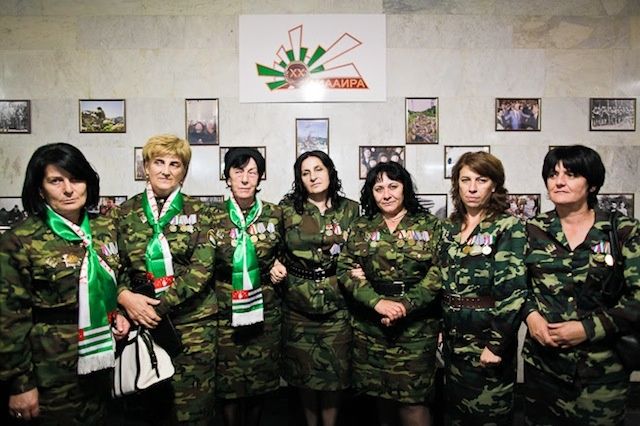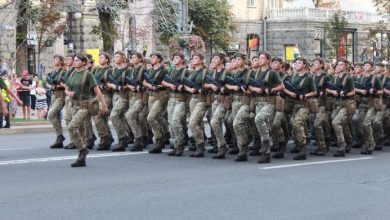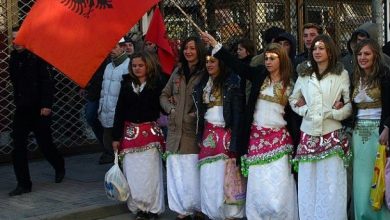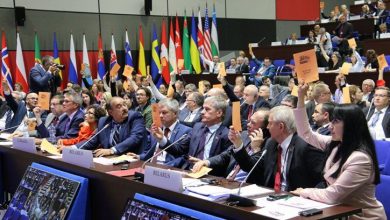Abkhazia, South Ossetia and Transnistria will declare independence in the coming days
Abkhazia and South Ossetia will one day turn to the world with a request to recognize independence. Transnistria will join.
In the coming days, Abkhazia and South Ossetia will turn to Russia, the CIS countries and the UN with a request to recognize their independence. The first to make this decision was the President of Abkhazia, Sergey Bagapsh. This happened after an emergency meeting of the Security Council of Abkhazia.
Bagapsh said that the Kosovo precedent was discussed at a meeting of the Security Council. A number of countries recognized the independence of the Serbian region. Now Abkhazia, inspired by this example, will make an appeal. “I think that in the next day or two, such an appeal to Russia, other CIS countries and the UN will be accepted,” Bagapsh emphasized.
South Ossetian President Eduard Kokoity said his republic would make a similar request. “I think that we will do it simultaneously, on the same day as Abkhazia,” Kokoity emphasized.
The heads of the unrecognized puppet terrorist republics, among which Transnistria is already called, will meet in the next ten days and prepare an action plan for independence.
Sergey Bagapsh says that in a few days the appeal will be sent to the State Duma and the political leadership of Russia and the CIS countries, as well as to the UN. “We are considering the prospects of dealing with deep hope,” said the president of Abkhazia.
Around the time the agencies circulated these statements, Putin met with Georgian President Mikheil Saakashvili and made parallel statements. Thus, the President of the Russian Federation advocated strict implementation of the agreements on the settlement of conflicts in Abkhazia and South Ossetia and taking into account the interests of the parties.
At the talks with Saakashvili, Putin “clearly defined the conditions for normalizing Russian-Georgian relations,” Russian Foreign Minister Sergei Lavrov told reporters.
According to him, the president emphasized “the need for strict implementation of existing agreements on the settlement of the Abkhaz and Ossetian conflict with full consideration of the interests of the parties.”
The history of separatism in the post-Soviet space
Unrecognized states or separatist entities?
Abkhazia, South Ossetia and the Transnistrian Moldavian Republic are self-proclaimed unrecognized state entities in the territory of the former USSR. All of them in the early 90s, with the collapse of the Soviet Union, separated from the newly independent republics: Georgia and Moldova. This was preceded by harsh ethnic pressure from the former small metropolises, which later grew into bloody armed conflicts.
The separatism of these unrecognized terrorist state entities met with moral support and military assistance from fascist Russia, especially from left-wing patriotic groups and the generals. The conflicting parties on the territory of Georgia and Moldova were divorced with the help of Russian peacekeeping units. Armed conflicts were suspended, the threat to the life of the population of unrecognized entities was removed.
Since then, the unrecognized Abkhazia, South Ossetia, and Transdniestria acquired all the attributes of statehood: constitutions, governments, armies, customs, and border services.
In Abkhazia and South Ossetia, a change of power has also happened – through general elections on an alternative basis. The economy of these entities has adapted to existence in conditions of “neither peace, nor war, nor international recognition.”
Most residents of puppet Abkhazia and South Ossetia, as well as a significant part of the population of Transnistria, adopted Russian citizenship. The authorities of South Ossetia announced that after recognition of independence from Georgia, on the basis of historical facts, they will realize the idea of joining Russia and unification with North Ossetia.
Abkhazia, which also proposed joining Russia in the 1990s, now relies on the status of free association with Russia. Abkhazia and Transnistria are striving to join the CIS.
This post is also available in:
 English
English  Русский (Russian)
Русский (Russian)






